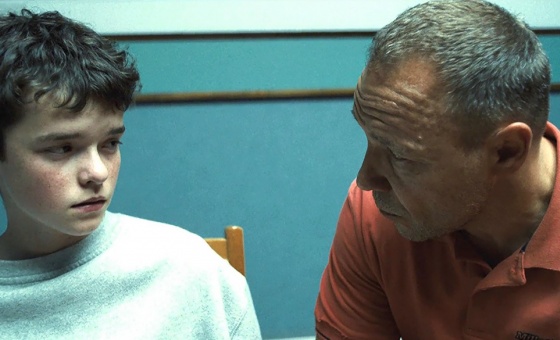This is the last article you can read this month
You can read 5 more article this month
You can read 5 more articles this month
Sorry your limit is up for this month
Please help support the Morning Star by subscribing here
POLICE must change the way they deploy tasers in order to address serious concerns about their use on children, people with mental illness and black people, a policing watchdog warned today.
The Independent Office for Police Conduct (IOPC) told forces that they risk “losing the trust and confidence of the communities they serve” if they do not act on the issue.
Pointing to the increased use of tasers on children and mentally ill people, the watchdog for England and Wales said there were several examples of missed opportunities for police to de-escalate situations before drawing the weapon.
Black people were more likely to be subjected to prolonged taser discharge than white people, according to a review of 101 investigations carried out by the IOPC between 2015 and 2020.
The findings come against a backdrop of concern over the disproportionate use of tasers in cases involving black people.
In June, police officer Benjamin Monk was convicted of manslaughter over the death of former footballer Dalian Atkinson, who went into cardiac arrest after being subjected to kicks to the head and an excessive 33-second taser deployment during his arrest.
The investigations reviewed by the IOPC involved six children, with the youngest 14 years old, and four people over 60, including a pensioner with dementia.
The watchdog found that mental health concerns or learning disabilities were a factor in 59 of the cases reviewed, while the highest number of discharges against one individual was 12.
There was evidence in several of these cases that officers did not attempt to communicate with individuals who had mental health problems or issues with alcohol or drugs, and instead only shouted instructions.
There were also examples of alleged inappropriate comments made by officers during taser use, including one who discharged their weapon at a person’s face saying: “Have that.”
Lisa Cole, whose brother Marc Cole – who suffered from mental ill health – was tasered for more than 40 seconds by a police officer before he suffered a cardiac arrest, called for an outright ban on using the electric charge device on vulnerable people.
“This report is welcome and critical, but is only the first step in righting wrongs,” she said.
Deborah Coles, director of legal charity Inquest, said that the recommendations “do not go far enough to create the systemic change needed.
“We don’t just need more scrutiny, community oversight, training or guidance.
“We need … police officers [held] to account when they abuse their powers and to confront the reality presented by this evidence.”
Stopwatch researcher and policy manager Habib Kadiri said the campaign group was gravely concerned about the disproportionate deployment of tasers and appalled at the lack of restrictions on their use, leading to instances where they have been drawn on children as young as 11 years old.
“Yet, far from looking to limit the use of these lethal weapons, the Home Office has not only issued more powerful versions for all forces but increased their availability beyond that of specialist firearms officers,” he said.
“Unfortunately calls for greater scrutiny on their use have had no effect and there is every indication that demands for better training will go the same way.”
Black Activists Rising Against Cuts co-founder Zita Holbourne said the disproportionate use of the “inhumane” weapons on black people was not surprising given the existence of institutional racism.
“Police cannot be allowed to brutalise black people with impunity,” she said.
“Too many black people have died at the hands of the police and they should not be provided with weapons such as tasers, given their track record in targeting black people.”
Stand Up to Racism co-convener Sabby Dhalu said that changes to guidance on appropriate use of tasers are “likely to have little impact without justice and an end to institutional racism.”
Liberty policy and campaigns officer Emmanuelle Andrews said: “We need community-led interventions through investment in services such as health, education, housing and social welfare.
“And we need to work with communities to develop strategies for keeping all of us safe — with fairness, participation and human rights at their heart.”
Lucy D’Orsi of the National Police Chiefs’ Council claimed that the report was vague and lacking detail, and that it ignores extensive pieces of work that are already under way.
Police Federation of England and Wales national vice-chairman Che Donald rejected any suggestion that taser use was based on anything other than “highly complex and difficult assessments of threat, harm and risk.”
The Home Office was approached for comment.









